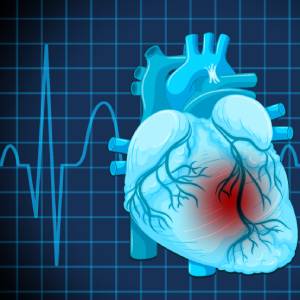Acute myocardial infarction during late COVID-19 era: patient characteristics, presentation and outcomes

Submitted: December 3, 2022
Accepted: December 15, 2022
Published: January 13, 2023
Accepted: December 15, 2022
Abstract Views: 1361
PDF: 275
Publisher's note
All claims expressed in this article are solely those of the authors and do not necessarily represent those of their affiliated organizations, or those of the publisher, the editors and the reviewers. Any product that may be evaluated in this article or claim that may be made by its manufacturer is not guaranteed or endorsed by the publisher.
All claims expressed in this article are solely those of the authors and do not necessarily represent those of their affiliated organizations, or those of the publisher, the editors and the reviewers. Any product that may be evaluated in this article or claim that may be made by its manufacturer is not guaranteed or endorsed by the publisher.
Similar Articles
- Mario Petretta, Wanda Acampa, Emilia Zampella, Roberta Assante, Maria Piera Petretta, Renato Cuocolo, Irma Fabiani, Giuseppe Luca Della Ratta, Pasquale Perrone-Filardi, Alberto Cuocolo, Imaging techniques for assessment of coronary flow reserve , Monaldi Archives for Chest Disease: Vol. 76 No. 4 (2011): Cardiac series
- Pier Luigi Temporelli, Giovanni Battista Zito, Roberto Franco Pedretti, Francesco Iachini Belisarii, Giuseppe Putortì, Pompilio Faggiano, Nonsteroid anti-inflammatory drugs (NSAID) and risk of cardiovascular events. Literature review and clinical implications , Monaldi Archives for Chest Disease: Vol. 82 No. 3 (2014): Cardiac series
- E.I. Metaxas, K. Kotsifas, G. Tatsis, P. Simpsiris, I. Ntanos, G. Tsoukalas, Tuberculous pericarditis: three cases and brief review , Monaldi Archives for Chest Disease: Vol. 73 No. 1 (2010): Pulmonary series
- T. Kinnunen, O. Säynäjäkangas, T. Keistinen, Features of hospitalisations for acute exacerbation of COPD resulting in death , Monaldi Archives for Chest Disease: Vol. 67 No. 1 (2007): Pulmonary series
- Ornella Bettinardi, Giulio Vidotto, Loretta Moroni, Roberto F.E. Pedretti, Maurizio Maini, Alessandro Rosi, Giorgio Bertolotti, Measuring change in rehabilitative cardiology: reliability of a short questionnaire to assess an outcome , Monaldi Archives for Chest Disease: Vol. 78 No. 2 (2012): Cardiac series
- H. Bhardwaj, B. Bhardwaj, P.V. Carlile, Recurrent pneumomediastinum in a patient with rheumatoid arthritis , Monaldi Archives for Chest Disease: Vol. 79 No. 3-4 (2013): Pulmonary series
- Francesca Donati, Leonardo Misuraca, Chrysanthos Grigoratos, Caterina Violo, Stefano Vannucci, Alberto Balbarini, An uncommon clinical condition: chronic thrombosis of the inferior vena cava. A case report and review of literature , Monaldi Archives for Chest Disease: Vol. 74 No. 1 (2010): Cardiac series
- Eduardo Bossone, Santi Trimarchi, Gloria Esposito, Stefano Aliberti, Rodolfo Citro, Luigi Allegra, Francesco Blasi, Chlamydia Pneumoniae and Acute Aortic Syndrome: A Call for a Multi-Institutional Study , Monaldi Archives for Chest Disease: Vol. 70 No. 2 (2008): Cardiac series
- Anna Stainer, Paola Faverio, Francesca Bono, Alberto Pesci, An unusual presentation of pulmonary lymphoma: When diffuse ground glass opacities can mean anything , Monaldi Archives for Chest Disease: Vol. 88 No. 1 (2018)
- Piergiorgio Muriana, Angelo Carretta, Paola Ciriaco, Francesca Rossetti, Giampiero Negri, Isolated tension pneumoperitoneum following endobronchial ultrasound-guided transbronchial needle aspiration complicated by cardiac peri-arrest: A case report , Monaldi Archives for Chest Disease: Vol. 88 No. 3 (2018)
<< < 12 13 14 15 16 17 18 19 20 21 > >>
You may also start an advanced similarity search for this article.

 https://doi.org/10.4081/monaldi.2023.2502
https://doi.org/10.4081/monaldi.2023.2502





